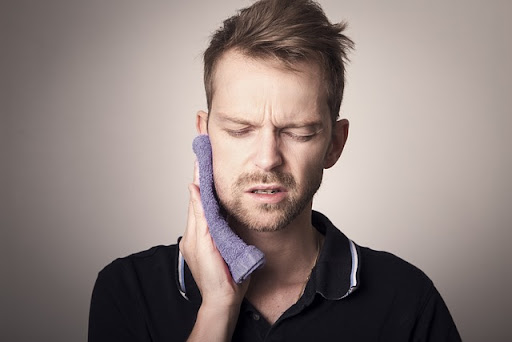You roll over, yawn, stretch, and…YIKES! You rub your jaw thoughtfully, trying to ease the soreness. What the heck? Why does my jaw hurt? Pain or discomfort happens to most of us sometimes, but it may be time to talk to your dentist if it’s frequently happening. Various things can cause a sore jaw in the morning. Your dentist can do an examination and diagnose the cause of the pain. It could be a sign of Bruxism; if left untreated, it can have long-term consequences.
What Is Bruxism?
Bruxism is a fancy medical term for grinding your teeth at night. It’s a common reaction to stress and anxiety, so it may be temporary and nothing to worry about. But if it happens often and over an extended period, it can cause broken teeth and damage your jaw. It’s important to let your dentist know if you are experiencing frequent jaw pain, so she can watch for signs and provide treatment before you have lasting damage.
What Causes Bruxism?
The primary cause of Bruxism is stress and anxiety. In children, bullying, abuse, or other trauma are examples. Parents should immediately investigate if they notice their child clenching their jaw or grinding their teeth (awake or asleep). Children often grow out of grinding their teeth, but if trauma is the underlying cause of the condition, address it as soon as possible.
In adults, various stressors, such as work, relationships, financial difficulties, etc., are also factors. It may be a common reaction to a temporary living situation. Still, if it continues for an extended time, it could be a symptom of a sleep disorder, an anxiety disorder, or other mental health issues. If you’ve been diagnosed with a mental health condition, you must notify your dentist so she can monitor its effect on your teeth.
What Can I Do?
The most common treatment for Bruxism is wearing a mouth guard or dental correction splints. The first step is to contact The Dental Care Center to schedule an exam. Your dentist can mold your teeth and construct a mouth guard to protect you against tooth and jaw damage. Other treatments could be considered, including addressing and managing stress and anxiety through meditation, Cognitive Behavior Therapy, and other therapies for sleep disorders. Medications have not proven very effective in treating Bruxism, but if other treatments fail, your doctor may prescribe muscle relaxants, Botox injections, or medications for anxiety and stress.







